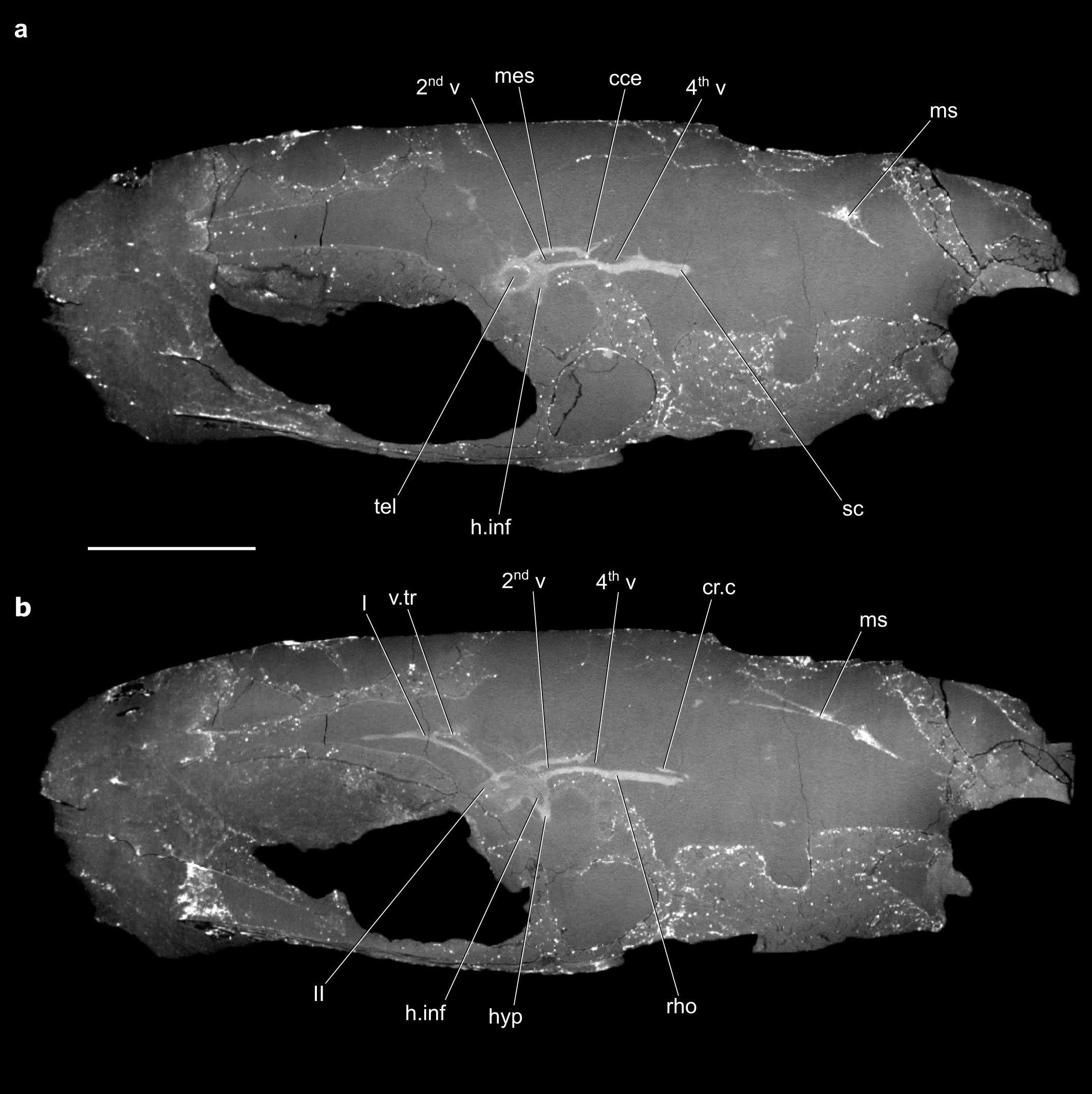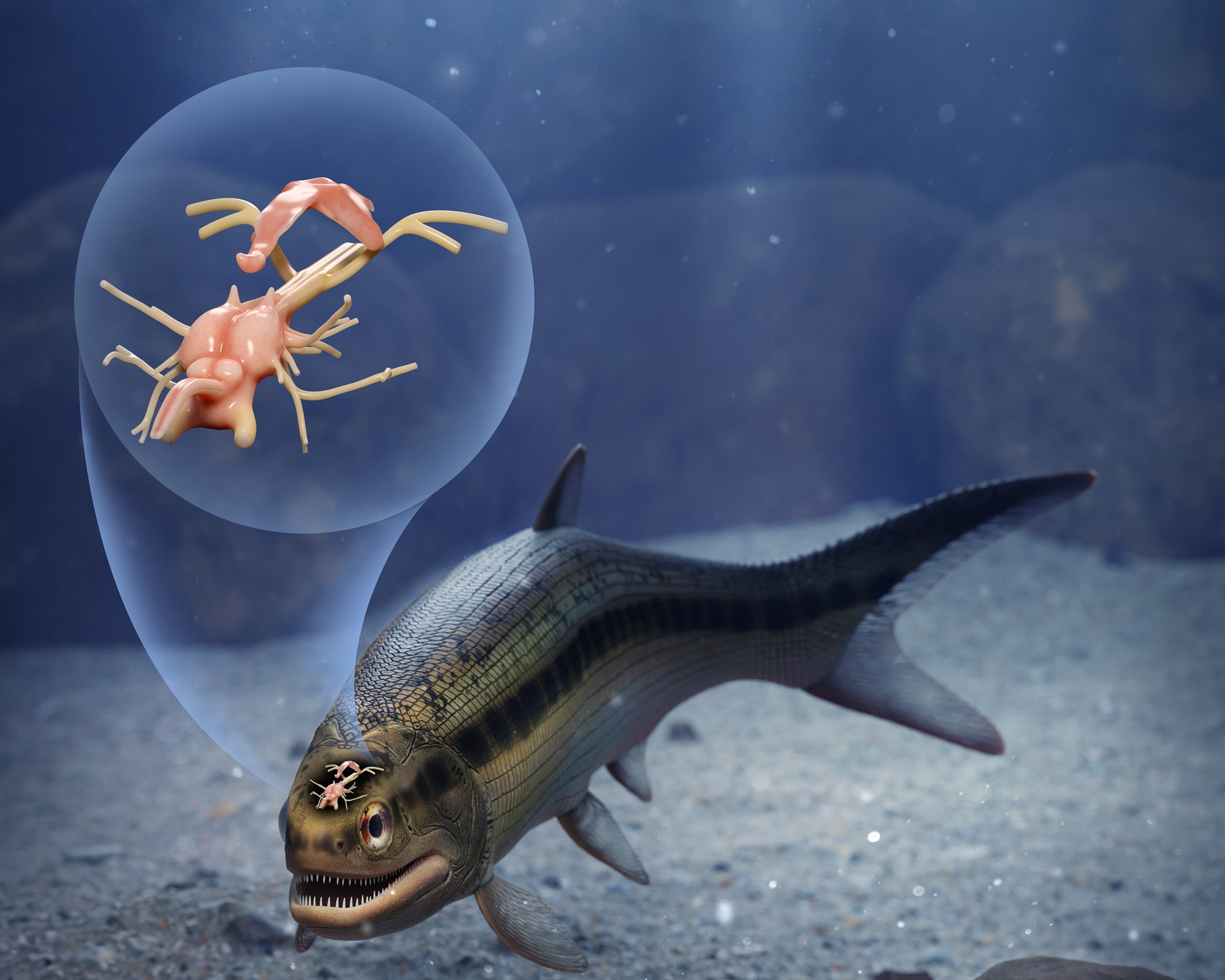
The recent discovery of the oldest-known vertebrate brain is giving scientists valuable insights into the evolution of the ray-finned fish species. The diverse group comprises about 50 percent of living vertebrate species. They include everything from trout to salmon and goldfish to seahorses.
The preserved brain was found in a 319-million-year-old skull of an ancient fish called Coccocephalus wildi (C. wildi). The fossil was found in a British coal mine over a century ago. But it appeared to offer no valuable information and was soon donated to the Manchester Museum in England.

Earlier this year, researchers from the University of Michigan borrowed the skull. They hoped to examine it as part of a larger study on the internal structure of early ray-finned fishes. However, things got exciting when a CT scan of the fossil revealed an unusual blob. The mystery object had all the attributes of a vertebrate brain.
"It had all these features, and I said to myself, 'Is this really a brain that I'm looking at?'" University of Michigan paleontologist Matt Friedman said. "So I zoomed in on that region of the skull to make a second, higher-resolution scan, and it was very clear that that's exactly what it had to be."

Friedman and his team published their findings in the journal Nature on February 1, 2023. They believe the skull belonged to a small ray-finned fish, about six to eight inches (15 to 20 cm) long. Its brain and associated nerves were just about an inch (2.5 cm) long. The scientists suspect the brain was preserved because the fish got buried under sediments shortly after it died.
The C. wildi may have snagged the record for the oldest vertebrate brain. But the record for the oldest heart still belongs to a 380-million-year-old fish called Gogo!
Resources: NewAtlas.com, news.umich.edu, CNN.com